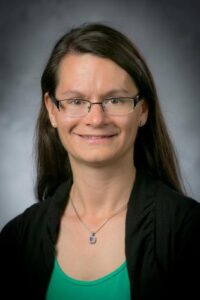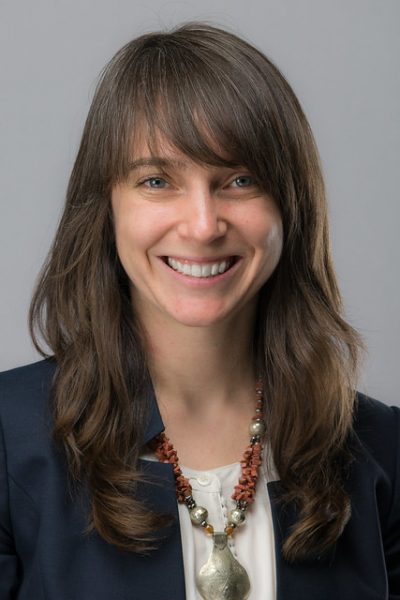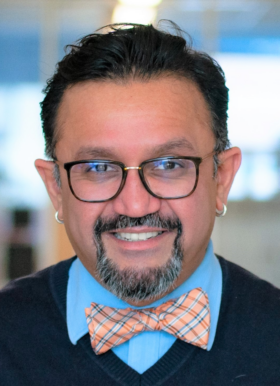Dr. Claudia Gunsch
 Dr. Claudia Gunsch is the Muriel Theodorsen Williams E’46 Distinguished Professor of Civil & Environmental Engineering at Duke University and Director of the NSF Engineering Research Center for Precision Microbiome Engineering. She holds additional appointments in the Nicholas School of the Environment and the Department of Biomedical Engineering. Her research focuses on the ecological impacts of microbiome engineering for sustainable environmental applications, with funding exceeding $36 million from prestigious agencies such as the National Science Foundation and the US Environmental Protection Agency. Dr. Gunsch’s work has earned her numerous awards, including the NSF Faculty Early Career Development Award and the ASCE Walter L. Huber Civil Engineering Research Prize. Recognized for her mentorship, she has guided over 30 graduate students and is a leader in both research and academia.
Dr. Claudia Gunsch is the Muriel Theodorsen Williams E’46 Distinguished Professor of Civil & Environmental Engineering at Duke University and Director of the NSF Engineering Research Center for Precision Microbiome Engineering. She holds additional appointments in the Nicholas School of the Environment and the Department of Biomedical Engineering. Her research focuses on the ecological impacts of microbiome engineering for sustainable environmental applications, with funding exceeding $36 million from prestigious agencies such as the National Science Foundation and the US Environmental Protection Agency. Dr. Gunsch’s work has earned her numerous awards, including the NSF Faculty Early Career Development Award and the ASCE Walter L. Huber Civil Engineering Research Prize. Recognized for her mentorship, she has guided over 30 graduate students and is a leader in both research and academia.
Dr. Thea Whitman

Dr. Thea Whitman is an Associate Professor of Soil Ecology in the Department of Soil and Environmental Sciences at the University of Wisconsin-Madison. She earned her MS and PhD in Soil Science with Dr. Johannes Lehmann at Cornell University, where she studied the effects of biochar on carbon cycling and related policy. She then worked as a postdoctoral researcher with Dr. Mary Firestone at the University of California, Berkeley, where she investigated the role of plant roots and soil microbial communities in the stabilization and destabilization of soil organic matter. In Wisconsin, her lab asks questions at the nexus of soil microbial ecology and biogeochemistry, with a particular emphasis on wildfire effects on soil microbial communities and soil organic matter cycling. Outside of her academic work, she enjoys playing music, reading, joking around, and spending time with her family and friends.
Dr. Gautam Dantas

Dr. Gautam Dantas studies the ecology, evolution and transmission dynamics of microbes and their antibiotic resistance genes across multiple habitats, towards building better predictive models of resistance selection and dissemination. He conducts such investigations in both resource-rich and resource-poor settings in the U.S., Central America, South America and Africa, to elucidate the impact of features such as geography, cultural traditions, access to clean water, food and health care, population density, and disease endemicity on the exchange of microbes and their resistance genes between interconnected ecologies.